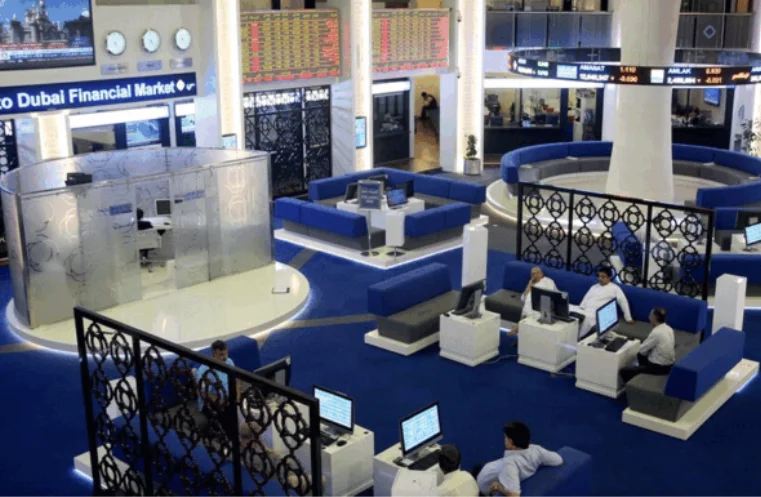Islamabad, Jan 11: Stock markets in the UAE wrapped up Friday’s session with mixed results, reflecting investor caution ahead of critical US jobs data. The US Non-Farm Payrolls (NFP) report, expected to reveal a 160,000 job increase for December while maintaining a 4.2% unemployment rate, is poised to influence the Federal Reserve’s monetary policy trajectory. This, in turn, could shape monetary strategies in the Gulf Cooperation Council (GCC), where most currencies are pegged to the US dollar.
Abu Dhabi’s main index rebounded with a 0.4% rise to close at 9,495 points, recovering from the previous session’s dip. Banking sector gains fueled this uptick, with First Abu Dhabi Bank climbing 1.1% and Abu Dhabi Commercial Bank surging 2.8%. The robust performance in banking offset broader market concerns, supporting the index’s weekly gain of 1.9%.
Dubai’s stock market, however, ended flat at 5,228 points, as mixed sectoral performances balanced out. While property giant Emaar Properties advanced 1.6%, lending a positive push to the index, losses in financial and telecom sectors neutralized the impact. Emirates NBD Bank edged down 0.2%, and Emirates Telecom (E&) dropped 0.7%. Despite the lackluster close, Dubai’s index recorded a solid 2% gain for the week.
Joseph Dahrieh, Managing Principal at Tickmill, noted that markets remained resilient despite the wait-and-see approach ahead of the US jobs report. “Investor sentiment leaned bullish, with both indices achieving weekly gains, signaling ongoing market optimism,” he said.
The GCC’s financial markets often mirror US monetary policy movements due to their dollar-linked currencies, making the NFP data release a pivotal event. Analysts suggest that a stronger-than-expected report could reinforce expectations of tighter Federal Reserve policies, potentially impacting regional markets in the coming weeks.
In summary, while Abu Dhabi’s index found support in banking stocks, Dubai’s market struggled to gain momentum, ending the week on a cautious note. Investors now turn their attention to external cues, particularly the US Federal Reserve’s potential response to the employment data, to gauge the future direction of UAE stock markets.









